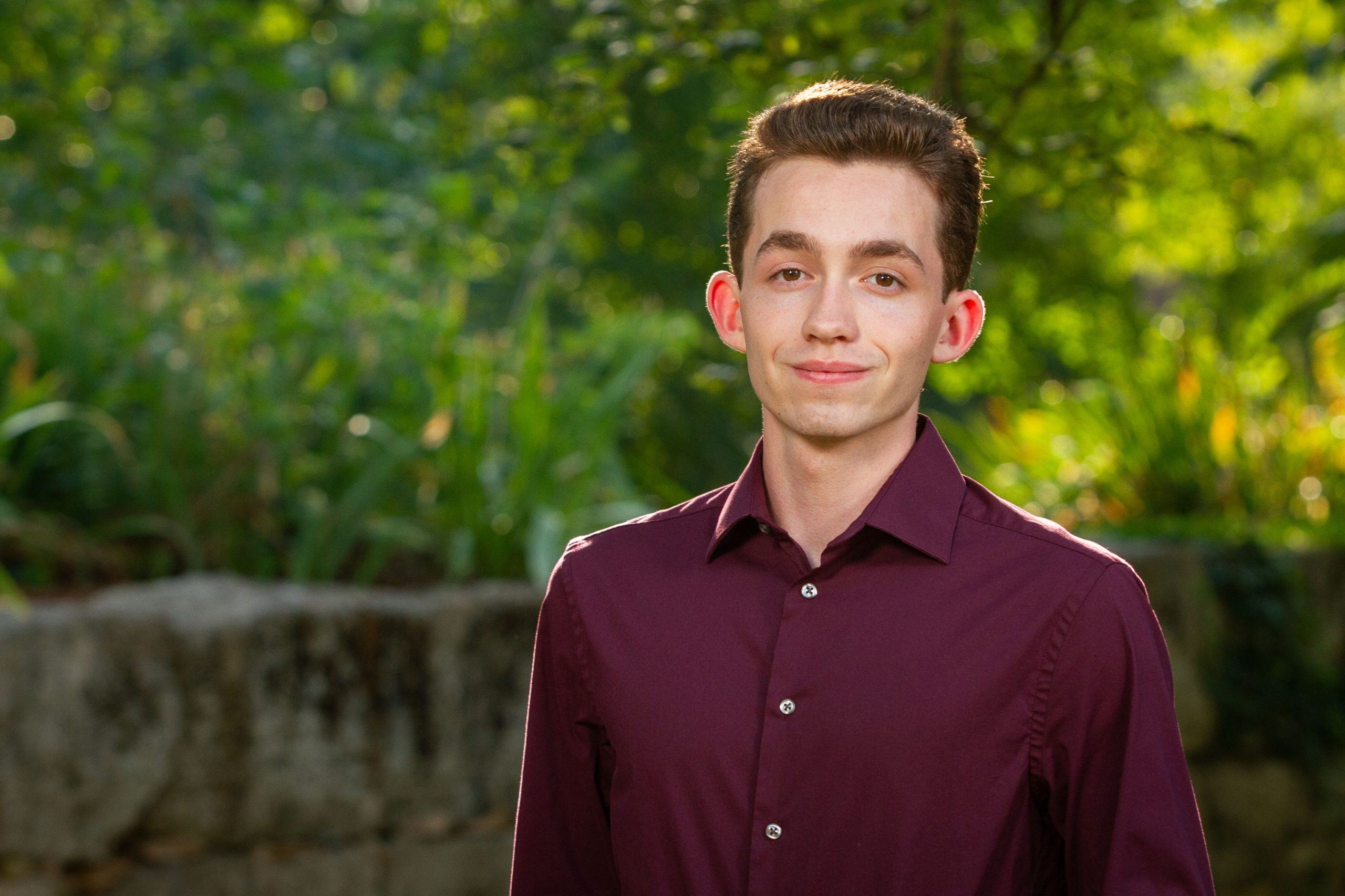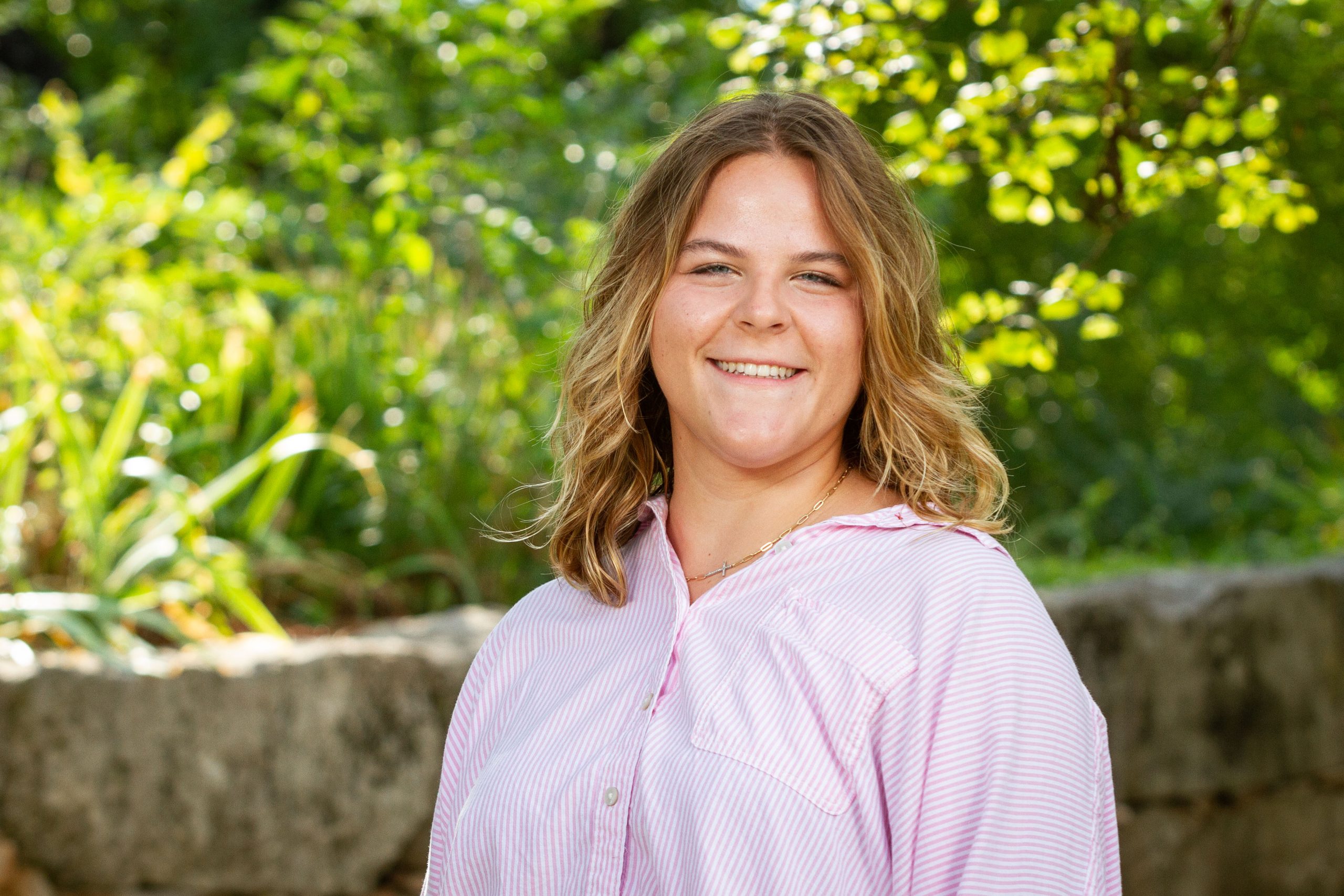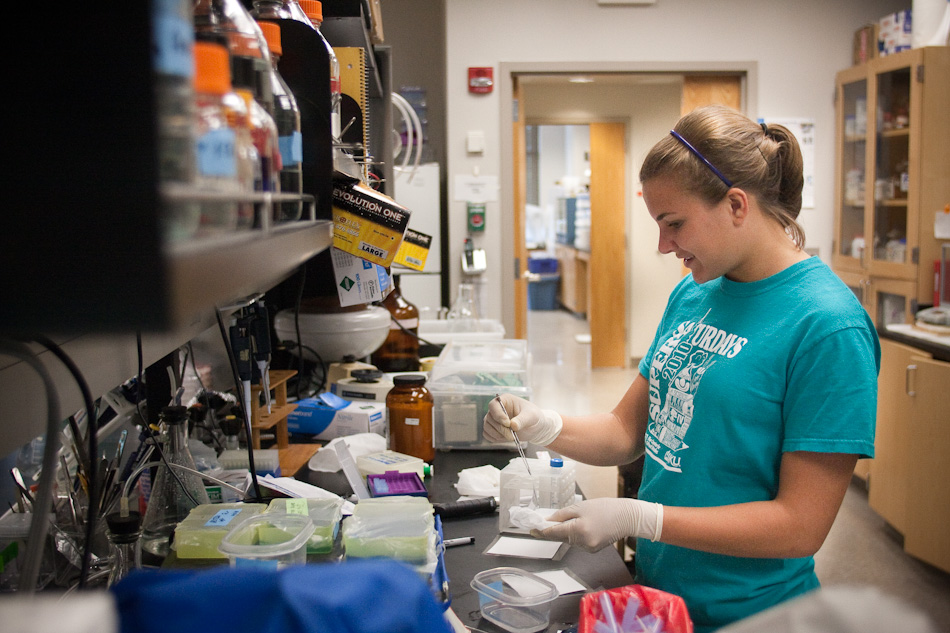While many high school students and graduates are spending their summer getting ready for college or enjoying weeks on the beach, Gatton Academy of Mathematics and Science in Kentucky students and recent alumni will spend the coming weeks academically engaged, building off their experiences at the Gatton Academy.
Over half of the current Academy students and recent alumni have current plans to participate in an academic or career exploration during the months of June, July, and August that will take place across the world. Derick Strode, the Academy’s coordinator for research, internships, and scholarships expressed both the geography and educational experiences of these students will be wide-ranging.
“This summer, Gatton Academy students’ plans range from internships in their own Kentucky backyards to research experiences than span from the east coast to adventures abroad,” Strode said. “Gatton Academy students will be on several continents this summer, collecting experiences that will propel them to higher achievements.”
Summer time research projects and internships are important educational experience facilitated by the Gatton Academy because it allows student to explore a possible career field while staying active academically.
“Our students have the chance to experience research for a summer with the guidance of a professional researcher,” Strode said. “They have the opportunity to shadow the inner-workings of a professional in the field the student plans to work. These practical experiences allow our students a glimpse into the realities of their own personal goals, forcing them to question and answer whether the career they have in mind for themselves truly fits.”
“The Gatton Academy’s curriculum is designed for the ultimate challenge during the academic year,” Strode said. “Likewise, we ask our students to consider doing more with their summers than your typical student. By completing summer time projects, the door is metaphorically opened for our students as they apply for colleges, scholarships, and we expect eventually in their career searches.”
Summer 2010 experiences include:
Research Experiences for Undergraduates (REUs):
From South Dakota to Michigan to Kentucky, nine Gatton Academy students will be participating in full-summer REU programs this year. REUs are funded by the National Science Foundation (NSF) and offer students full-summer research opportunities with travel, food, and lodging provided as well as a generous stipend. Nationwide, only 5.1% of REU applicants are admitted into a program, making REUs one of the most prestigious and selective of summertime opportunities.
REU in Information Assurance Security (Cybersecurity), Dakota State University, Madison, SD
- Sean Karlage (’10), of Edgewood
REU at the Space Physics Research Laboratory within the Department of Atmospheric, Oceanic and Space Sciences, University of Michigan, Ann Arbor, MI
- Sarah “Katie” Brown (’10), of Taylorsville
REU Mammoth Cave/Upper Green River Watershed Project at Western Kentucky University, Bowling Green, KY
- Sydney Combs (’11), of London
- Zachary Laux (’11), of Elizabethtown
- Sean Freeman (’11), of Hebron
- Katherine Rush (’10), of Frankfort
REU in Investigative Biotechnology at Western Kentucky University, Bowling Green, KY
- James “Zac” Forshee (’10), of Franklin
- Alexander Hare (’10), of Morehead
- Margaret Matheny (’10), of Ashland
International Research Experiences for Scientists:
Two students have been selected to participate in an NSF International Research Experiences for Scientists program at the National Chung Hsing University in Taichung, Taiwan. This program, on the same level as an REU, offers students fully paid travel to Taiwan, food, lodging, and a stipend.
Opto-Electronic Polymer Laboratory, National Chung Hsing University, with Dr. Ru-Jong Jeng
- Camille Turner (’11), of Radcliff
Membrane Separation Technology Laboratory, National Chung Hsing University, with Dr. Shing Yi Suen
- Kia Allen (’11), of Georgetown
DAAD RISE Program (Germany):
Rebecca Brock (’10) of Rineyville has been selected for the Deutscher Akademischer Austausch Dienst (German Academic Exchange Service) Research Internships in Science and Engineering (DAAD RISE) program in Brunswick, Germany. She will be doing biochemical research involving gold complexes. She will be synthesizing gold complexes and testing their effects biologically. Rebecca will receive pay from the DAAD at 650 Euro per month this summer, as well as health insurance, a paid trip to Heidelberg, and a Rail Pass for travel in Germany.
EarthWatch Student Challenge Awards Program:
Clarice Esch (’11) of Somerset has been accepted into the prestigious EarthWatch Institute’s Student Challenge Awards Program. She will be a part of a research team traveling to Cook’s Lake Reserve in Nova Scotia, Canada to perform research on the mammals of Nova Scotia. Clarice’s award includes full travel expenses, food, and lodging for her trip to Nova Scotia.
WKU Chinese Language Flagship Study Abroad:
Three Gatton Academy students will be traveling to Chongqing, China this summer for an eight-week, intensive language study abroad trip with the WKU Chinese Language Flagship program. Students will earn 12 hours of college credit for the academic work they will complete as part of the July and August trip.
- Jason Ludden (’10), of Columbia
- Jared Mink (’10), of East Bernstadt
- Sarah Schrader (’11), of Bowling Green
Gatton Academy Research Internship Grant recipients:
Eleven rising seniors were chosen to receive Gatton Academy Research Internship Grants (RIG) from the Gatton Academy to support research work this summer. The 2010 RIG recipients and their research locations and projects are:
- Derek Fox (’11), of Alexandria, will be researching artificial intelligence with Dr. Jeffrey Ward at Northern Kentucky University’s Department of Computer Science.
- Victoria Gilkison (’11), of Lawrenceburg, will be working with Dr. Monte McGregor at the Kentucky Department of Fish and Wildlife Resources Center for Mollusk Conservation in Frankfort, KY. Torie will be studying the relationship of aquatic plants to existing water quality in streams and rivers and the resulting influence on the distribution of rare aquatic species.
- Benjamin Howard (’11), of Morehead, will be working with Dr. Richard Schugart of the WKU Department of Mathematics and Computer Science on a mathematical research approach to a wound healing project.
- Shelby Martin (’11), of Mt. Washington, will be working with Carly Sinderbrand and Dr. Bruce Schulte of WKU’s Department of Biology, assisting with a research project on the dominance-stress hypothesis in horse behavior.
- David McChesney (’11), of Danville, will perform research with Dr. Seth DeBolt of the University of Kentucky Department of Horticulture at the Agriculture Science Center North in Lexington, studying cellulose synthase in plant proteins.
- Justine Missik (’11), of Danville, will be working on a research project with Dr. Stuart Campbell of the Spallation Neutron Source at the Oak Ridge National Laboratory in Oak Ridge, TN. Justine’s project will be on the development of a user interface tool for analysis of protein dynamics using Quasi-elastic Neutron Scattering (QENS). Along with her award, Justine will also be spending a few days of her summer participating in the Sante Fe Institute’s course on Exploring Complexity in Science and Technology in Portland, OR.
- Michael Phillips (’11), of Benton, will work with Dr. Matthew Nee of the WKU Department of Chemistry. Michael will be coding and testing a computational kinetic model for the reactions following aqueous nitrate photolysis.
- Sarah Schrader (’11) of Bowling Green, will perform bacteriophage research with Dr. Rodney King of the WKU Department of Biology.
- Won Suk “Josh” Song (’11) of Bowling Green, will do research with Dr. Kane Jennings of the Vanderbilt University Department of Chemical and Biomolecular Engineering. Josh’s research will be on surface properties of polymer films and will be titled “Responsive, Superhydrophobic Coatings.”
- Courtney Vance (’11), of Williamstown, will work with Carly Sinderbrand and Dr. Bruce Schulte of WKU’s Department of Biology. Courtney will be assisting with a research project on the dominance-stress hypothesis in horse behavior.
- Tina Stottman (’11), of Louisville, will be doing research with Dr. Kathryn Saatman at the University of Kentucky’s Spinal Cord and Brain Injury Research Center. Tina will be assisting with a research project on lessening cell damage in traumatic brain injuries.
NCSSSMST Research Symposium:
Four Gatton Academy students will be presenting research this summer at the National Consortium for Specialized Secondary Schools of Math, Science, and Technology (NCSSSMST) Research Symposium at the Stevens Institute of Technology in Hoboken, NJ. From June 6-9, these students will join 96 other students from across the country to share their research work through oral and poster presentations. Gatton Academy representatives and their presentation titles are:
- Clarice Esch (’11), of Somerset, will present “Is Collema sp., a Gelatinous Lichen, a Sustainable Source of Nitrogen for Greenhouse and Nursery Crop Production?”
- Desiree “Taylor” Harbin (’11), of Fairfield, will present “Nature’s Cabin: Altering the Design Process to Create a Sustainable Home”
- Tyler Scaff (’11), of LaGrange, will present “The Phage and I: Isolating and Purifying a Bacteriophage and Annotating its Genome”
- Natalie Schieber (’11), of Elizabethtown, will present “The Effect of Composition and Temperature on the Photolysis of Aqueous Nitrate Solution”
National Youth Policy Summit:
Four Gatton Academy students will be participating in the National Youth Policy Summit at the Keystone Science Center in Keystone, CO. This year’s summit on Energy Innovation will take place from June 13 – 19 and will bring together 40 of the brightest students from across the nation to come up with a proposal of policy solutions to the world’s energy needs. The following Gatton Academy students will participate:
- Anthony Bates (’11) of Walton
- Katie Goebel (’11) of Simpsonville
- Jake Moore (’11) of Crittenden
- Suzanne VanArsdall (’11) of Frankfort
Governor’s Scholar Program:
Four rising Gatton Academy seniors will be attending the Kentucky Governor’s Scholar Program this summer. These students are:
- Gabrielle Fisher (’11) of Cynthiana
- Tejas Sangoi (’11) of Owensboro
- Tyler Scaff (’11) of LaGrange
- Dana Wheeler (’11) of Louisville
Other Notable Summer Experiences:
Thomas Choate, a graduating senior from Bowling Green, will be doing research with Dr. Robert Choate of the WKU Department of Engineering. Thomas’ project will center on themography and building weatherization. He will be presenting his research at the InfraMation 2010 – Thermographer’s Conference in Las Vegas in November.
Michelle Compton, a graduating senior from Ashland, will be working with Dr. M.J. Wixsom at Guardian Animal Hospital in Ashland.
Amy Cordero, a graduating senior from Pikeville, will be taking classes through the University of Kentucky in Lexington.
Manuel Cortez, a graduating senior from Symsonia, will be observing Dr. James K. Turnbo and working at the Lone Oak Pharmacy in Paducah.
Thomas Delomas, a graduating senior from Lexington, will be taking classes through the University of Washington in Seattle.
Leah Frazier, a graduating senior from Russell, will be working as a Laboratory Technician at Brooks Eyecare in Greenup.
Lori Froedge, a graduating senior from Tompkinsville, will be working as a Teaching Assistant for the Center for Gifted Studies’ VAMPY (Verbally and Mathematically Precocious Youth) camp.
Emily Hall, a graduating senior from Nicholasville, will be returning this summer to Dr. Kathryn Saatman’s lab at the University of Kentucky’s Spinal Cord and Brain Injury Research Center in Lexington to conduct research. Emily will be studying the traumatic brain injury of mice models with the
hope of finding proteins that inhibit cell death.
Justin Jatczak, a graduating senior from Hopkinsville, will be doing research with Dr. Kathryn Saatman of the University of Kentucky’s Spinal Cord and Brain Injury Research Center in Lexington.
Jordan Jones, a graduating senior from Ft. Wright, will be return to the Wood Hudson Cancer Research Laboratory in Newport for her second summer. Jordan will be performing research in the cell culture
lab, working on finding a connection between two proteins that may be linked in cancer-signaling
pathways.
Holly Mitchell, a graduating senior from Salvisa, will participate in two writing workshops this summer in Iowa City, IA (the Iowa Young Writers Studio) and in Amherst, MA (the Juniper Institute for Young Writers).
Rohith Palli, a graduating senior from Lexington, will be doing research with Drs. John Rinehart and Michael Fried at the University of Kentucky’s Medical Biophysics Laboratory. Rohith will work to improve fluorescent tags on proteins and examine the improved tags’ effectiveness.
Savannah Price, a graduating senior from Louisville, will be volunteering at the Norton Suburban Hospital in Louisville.
Sarah Pritchett, a graduating senior from Winchester, will be volunteering with the Student Conservation Association for the second straight summer. This summer, she will be a part of a trail crew in the Great Smoky Mountains National Park in North Carolina.
Sean Stopher, a graduating senior from Louisville, will be doing a STEM-industry job at P.T. Hutchins in Louisville. Sean will be working with chemists to develop new products for the paint and coatings industry on a commercial consulting basis.
Nowelle Altman, a first-year student from Somerset, will be doing research with Dr. Steven Wininger of the WKU Department of Psychology. Nowelle plans to make a compendium of documented effective reading strategies and find the empirical evidence to support those strategies. This work will be applied to her research project next academic year with Dr. Wininger.
Kevin Andrew, a first-year student from Bowling Green, will be doing research on programming and iPhone development.
Claci Ayers, a first-year student from Bowling Green, will be volunteering as a part of the STriVe- Summer Teens Volunteer program at the Children’s Hospital at Vanderbilt University Medical Center in Nashville, TN.
Anthony Bates, a first-year student from Walton, will be shadowing an optometrist at Wing Eye Care in Florence.
Anthony Bombik, a first-year student from Union, will be participating in the U.S. Space and Rocket Center’s Advanced Space Academy in Huntsville, AL. He will also be taking a class through WKU this summer and doing research with Dr. Claus Ernst of the WKU Department of Mathematics and Computer Science.
Corban Coffman, a first-year student from Lexington, will be participating in the three-week Summer Intensive theatre training program offered through the Kentucky Classical Theatre Conservatory in Lexington.
Gabrielle Fisher, a first-year student from Cynthiana, will travel to Washington, DC with Bluegrass Electric as a part of the Washington Youth Tour.
Katie Goebel, a first-year student from Simpsonville, will be shadowing at a veterinary clinic.
Desiree “Taylor” Harbin, a first-year student from Fairfield, will be participating in a Materials Science Camp at the Missouri University of Science and Technology.
Leah Hayden, a first-year student from Corydon, will be participating in a professional shadowing experience.
Andrew Kenady, a first-year student from Woodburn, will be attending the DigiPen Institute’s two-week Video Game Development Level 3 workshop in Redmond, Washington.
Madeline Lauzon, a first-year student from Owensboro, will be attending the 2010 Thespian Festival in Lincoln, NE. She will also be volunteering with the Theatre Workshop of Owensboro this summer.
Jae Lee, a first-year student from Hopkinsville, will be volunteering at the Jenny Stuart Medical Center in Hopkinsville. Specific department or doctors?
Jake Moore, a first-year student from Crittenden, will be participating in the Naval Academy Summer Seminar in Annapolis, MD.
Michael Phillips, a first-year student from Benton, will participate in the Naval Academy Summer Seminar in Annapolis, MD this summer in addition to his research at WKU.
Tyler Scaff, a first-year student from LaGrange, will also spend a part of his summer job shadowing at Baptist Northeast Hospital in LaGrange.
Shelby Stephens, a first-year student from Tompkinsville, will be shadowing…
Sarah Tariq, a first-year student from Ashland, will be volunteering at the King’s Daughters Medical Center in Ashland.
Jessica Thornsberry, a first-year student from Louisa, will be participating in the Robinson Scholars Program Writers’ Workshop at the University of Kentucky.
Miller Travis, a first-year student from Glasgow, will be working on a research project with the Electric Plant Board of Glasgow. He will also be taking a class through WKU.
Suzanne VanArsdall, a first-year student from Frankfort, will be volunteering in South Africa through the Projects Abroad organization. Suzanne will be working with a human rights lawyer, interviewing abandoned and abused children for two weeks. She will live with a host family.
Benjamin Venable, a first-year student from LaGrange, will participate in several leadership conferences and institutes, including the Youth Governor’s Conference at George Washington University in Washington, DC, the YMCA Youth Conference on National Affairs (CONA) is held at theYMCA Blue Ridge Assembly in Black Mountain, NC, and the Kentucky YMCA Youth Conference’s Leadership Training Conference in Jabez.
Paras Voras, a first-year student from Owensboro, will perform cancer research and shadow under Dr. Kishor Vora at the Owensboro Cancer Center.
Kelsey Wagner, a first-year student from Taylorsville, will be shadowing a veterinary at the Louisville Metro Animal Services’ Animal Care Center.
Celia Whelan, a first-year student from Bardstown, will perform this summer with the The Stephen Foster Story musical in Bardstown.










